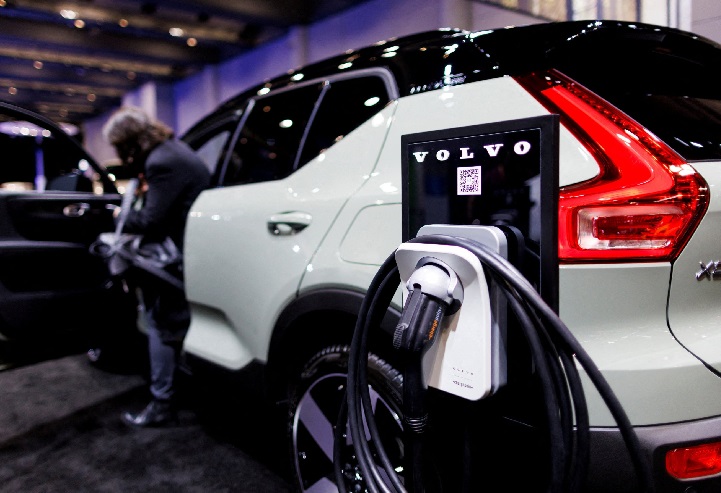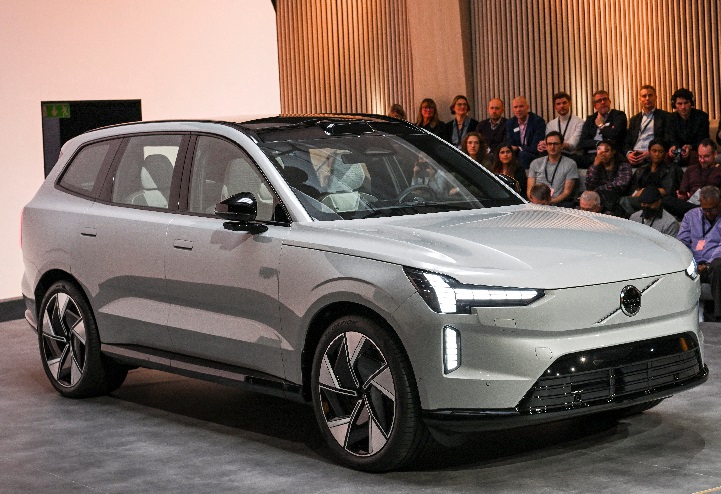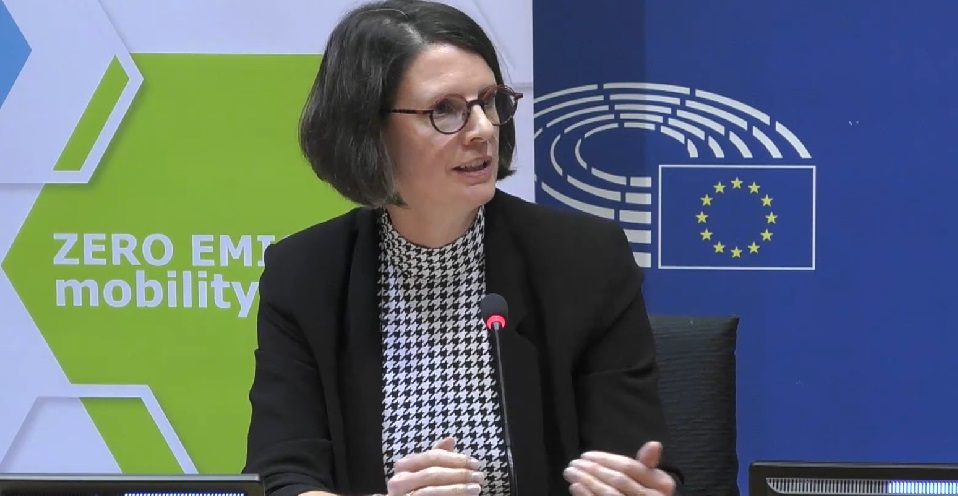Volvo Cars was one of the first traditional car manufacturers to announce a shift to fully electric. However, in September, the company had to adjust its ambitions, just as other automakers have done.
The truth is that vehicle sales – across all propulsion types – have declined recently.
“At the moment, it’s difficult to sell cars in general, not just battery electric vehicles (BEVs), although we had hoped they would sell better,” explains Céline Domecq, Director of Government Affairs at Volvo Cars.

While there was 9% growth in this market – excluding Germany – it was expected that this figure would reach double digits.
What measures would help companies like Volvo reach their targets?
“Anything on the demand side,” Domecq responds during the event “Harnessing Opportunities in Electric Mobility,” held at the European Parliament and covered by Mobility Portal Europe.
The executive explains that the market is in decline because the economic situation is not favourable.
Although it’s widely known that budgets in most countries are “tight,” Domecq acknowledges:
“When we ask for support to help people buy a BEV, it’s for those countries that can afford it – and not just for six months, only to stop it and start again.”
For example, it’s worth noting that in December 2023, Germany removed its environmental bonus, and recently, the Federal Government introduced new tax incentives aimed at businesses acquiring BEVs.
“And when they cannot give money, at least they should try to have coherent policies that drive the right type of motorisation,” she adds.
As an example, the Director of Government Affairs mentions the case of Sweden, where the bonus was stopped but the funds saved were promised for investment in charging infrastructure.
While this was a fair approach, later changes in taxation led to cheaper petrol.
“That’s not the right message. A coherent fiscal policy would be very helpful,” Domecq states.
Other initiatives to boost demand could include support for the installation of charging points, both on the street and at home.
“Any demand-side measure would be welcome during this challenging period,” Domecq remarks.
She continues, “It’s about getting through these years until we reach the point where we can be fully electric, and then profitability will follow.”
Volvo Cars: “Electrification is only the top of the iceberg”
“Our ambition is global, and we see that in some parts of the world it will take a bit longer than planned. But the end goal hasn’t changed: we want to be fully electric,” says Domecq.
Why does Volvo Cars pursue this goal?
Firstly, if the car industry wants to tackle its emissions, it must go electric, as most of these emissions come from the car’s use.
Once this is achieved, the company can focus on other phases, such as production.
The second reason is that “electrification is only the top of the iceberg.”
With the eMobility transition, new technologies are being developed that are crucial for the sector to remain competitive.
“The debate shouldn’t focus solely on changing the propulsion mode. In fact, we are completely transforming the car, developing a software-defined vehicle where artificial intelligence will play a major role,” the executive acknowledges.


Domecq also highlights the different uses that BEVs can offer.
“The car is a mode of transport that stays parked most of the time. But with electrification, it can become something more,” she says.
For example, vehicles can contribute energy to the grid and help balance it through bidirectional charging.
Need for High-Quality European Batteries
Domecq argues that investments in batteries must be urgently addressed.
“We need the supply chain here, but Europe also needs R&D in batteries because they need to be of good quality, and, at present, they’re not as good as those from China,” she says.
She continues, “It’s difficult to offer a customer a more expensive product of lower quality than one they could get from a third country.”
Finally, the executive notes that having more competitive energy prices in Europe would also help promote the transition.
Read more: Volta Trucks: “Frameworks and incentives are needed to ensure an inclusive transition”








